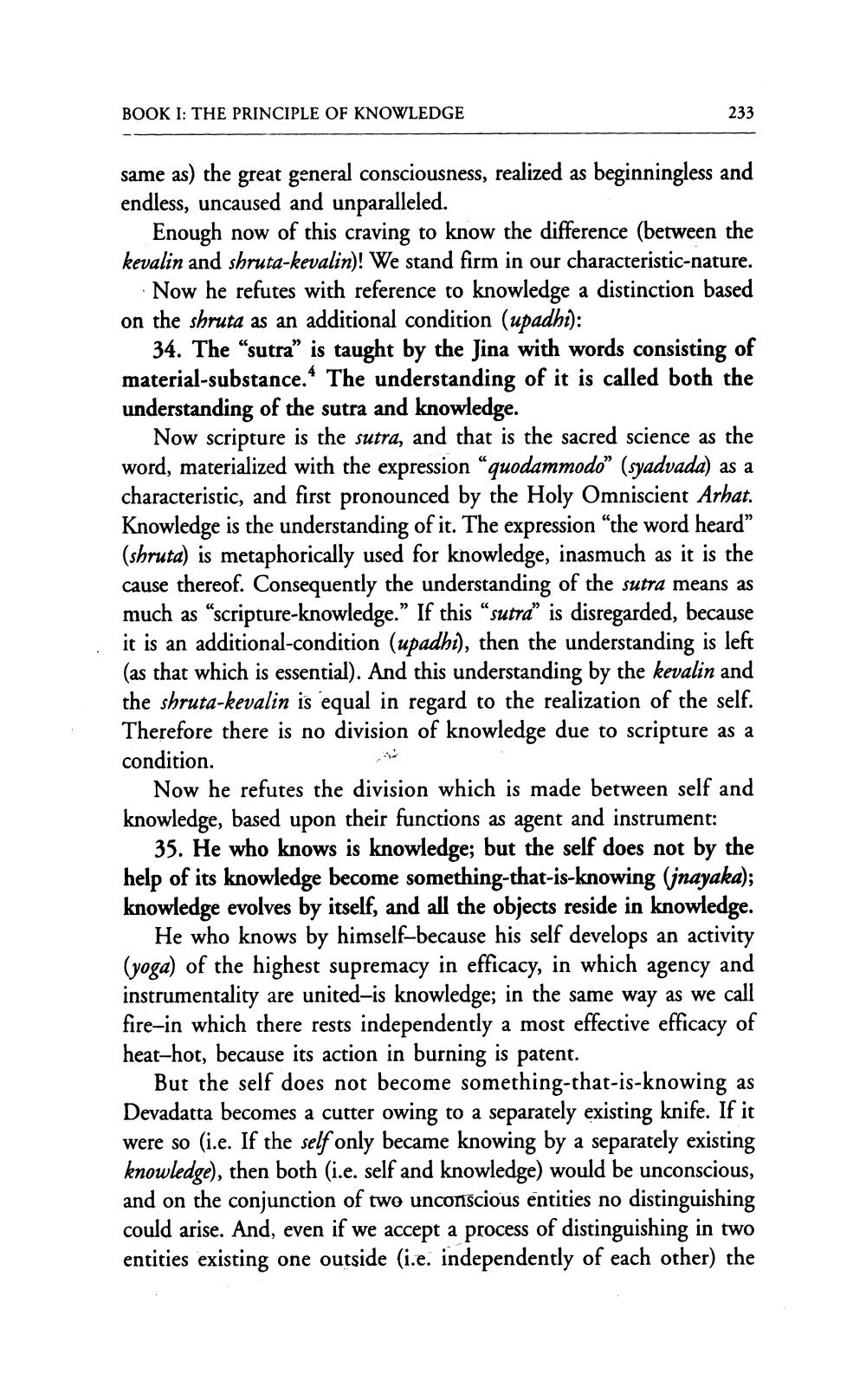________________
BOOK I: THE PRINCIPLE OF KNOWLEDGE
same as) the great general consciousness, realized as beginningless and endless, uncaused and unparalleled.
Enough now of this craving to know the difference (between the kevalin and shruta-kevalin)! We stand firm in our characteristic-nature.
Now he refutes with reference to knowledge a distinction based on the shruta as an additional condition (upadhi):
34. The “sutra” is taught by the Jina with words consisting of material-substance. The understanding of it is called both the understanding of the sutra and knowledge.
Now scripture is the sutra, and that is the sacred science as the word, materialized with the expression quodammodo” (syadvada) as a characteristic, and first pronounced by the Holy Omniscient Arhat. Knowledge is the understanding of it. The expression “the word heard” (shruta) is metaphorically used for knowledge, inasmuch as it is the cause thereof. Consequently the understanding of the sutra means as much as “scripture-knowledge.” If this “ sutra” is disregarded, because it is an additional-condition (upadhi), then the understanding is left (as that which is essential). And this understanding by the kevalin and the shruta-kevalin is equal in regard to the realization of the self. Therefore there is no division of knowledge due to scripture as a condition.
Now he refutes the division which is made between self and knowledge, based upon their functions as agent and instrument:
35. He who knows is knowledge; but the self does not by the help of its knowledge become something-that-is-knowing (inayaka); knowledge evolves by itself, and all the objects reside in knowledge.
He who knows by himself-because his self develops an activity (yoga) of the highest supremacy in efficacy, in which agency and instrumentality are united-is knowledge; in the same way as we call fire-in which there rests independently a most effective efficacy of heat-hot, because its action in burning is patent.
But the self does not become something-that-is-knowing as Devadatta becomes a cutter owing to a separately existing knife. If it were so (i.e. If the self only became knowing by a separately existing knowledge), then both (i.e. self and knowledge) would be unconscious, and on the conjunction of two unconscious entities no distinguishing could arise. And, even if we accept a process of distinguishing in two entities existing one outside (i.e. independently of each other) the




